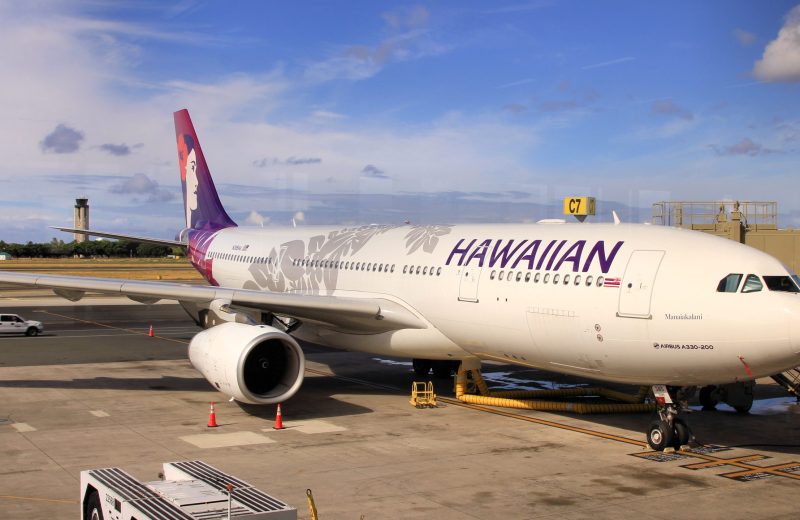Hawaiian Airlines says Aloha to sustainability boss

Diana Birkett Rakow, senior vice president of public affairs and sustainability at Alaska Airlines is set to become the CEO of Hawaiian Airlines – the first head of an airline to come from a sustainability background.
The appointment comes as Alaska Airlines and Hawaiian Airlines complete their merger and begin flying under a single operating licence.
“I’m excited for it. I think there’s so much in sustainability, and even just the literal definition of the word, that is about long-term durability and resilience,” Birkett Rakow tells SAF Investor. “There are many links between the bigger picture strategy and the sustainability work itself. So I’m glad to be involved in both.”
Alaska Airlines is a leader in driving sustainable aviation fuel (SAF) adoption, uplifting it from World Energy, Neste, Phillips 66, Shell and Cosmo Oil. It has also signed offtakes with AIRCO and Twelve, investing in both through its venture arm Alaska Star Ventures.
However, Birkett Rakow is not so sure these demand signals are having the desired effect on stimulating production. “I think there was that dialogue over the last five years about demand-signaling. Let’s buy it [SAF] so that we can demonstrate that there’s demand and the market will start to take off … I don’t think we have seen the level of change and market development that we need.”
This requires a new approach that needs longer term, multi-party thinking and collaboration which is going to allow SAF to scale. In September, oneworld Breakthrough Energy Ventures (BEV) Fund was announced to do precisely this.
Alaska Airlines led the investment round, alongside American Airlines, a first close at $150m. Other airline investors included International Airlines Group (IAG), Japan Airlines, Cathay Pacific and non-oneworld member, Singapore Airlines.
“We started to think about what else we could do. One is to invest together, pooling dollars at the early stage of technology development. But in order to do that we need specialised expertise,” explains Birkett Rakow. Breakthrough Energy will provide the expertise.
For Breakthrough Energy, partnership with oneworld was a natural fit in many ways. “When the oneworld Alliance approached us, it was clear our goals aligned. The airlines were looking for a way to move beyond offtake agreements and instead make direct investments in next-generation SAF technologies,” Eric Toone, chief technology officer at Breakthrough Energy and managing partner of BEV tells us.
“That is exactly the kind of market gap we look to fill, where our technical and investment expertise can accelerate progress and bring real solutions to scale.”
The focus for the fund will be on finding next-generation SAF technologies that will be cost competitive at scale. And the ambition is global – advancing technologies that fit the investment thesis, in multiple geographies to create new companies and the future market.
“The fund is designed to be flexible, but our primary focus is on early-stage companies that are moving beyond the lab and beginning to scale,” says Toone. “We are looking for next-generation SAF technologies that are scientifically sound, commercially scalable and have a credible path to cost competitiveness.”
Both BEV and oneworld bring their unique strengths to the table. “The airlines understand their operations, customers and fuel needs better than anyone,” Toone adds. “Breakthrough Energy Ventures brings the technical and scientific lens, along with the ability to evaluate which innovations truly have the potential to scale, deliver real emissions reductions and become cost-competitive.”
The intent for oneworld BEV Fund is to engage companies across the ecosystem. OEMs, financial institutions and corporate customers will be involved in the next investment round, says Birkett Rakow.
Toone had a similar take on the value of working directly with end customers. “When innovators and end users work together from the start, we can close the gap between what is technologically possible and what is operationally practical,” he says.
Alongside this global investment strategy, regional solutions remain crucial.
Hawaiian Airlines has partnered with Par Hawaii, the state’s largest energy supplier, to explore the potential for SAF production on Oahu. Par Hawaii has invested $90m to convert a portion of its refinery to produce renewable fuels, including SAF.
“There’s a really interesting opportunity here, a good example of an ecosystem play, to create SAF, to create new economic opportunity and help diversify Hawaii’s economy,” Birkett Rakow tells us.
Although you are unlikely to read about any of it on a billboard.
Subscribe to our free newsletter
For more opinions from SAF Investor, subscribe to our email newsletter.
